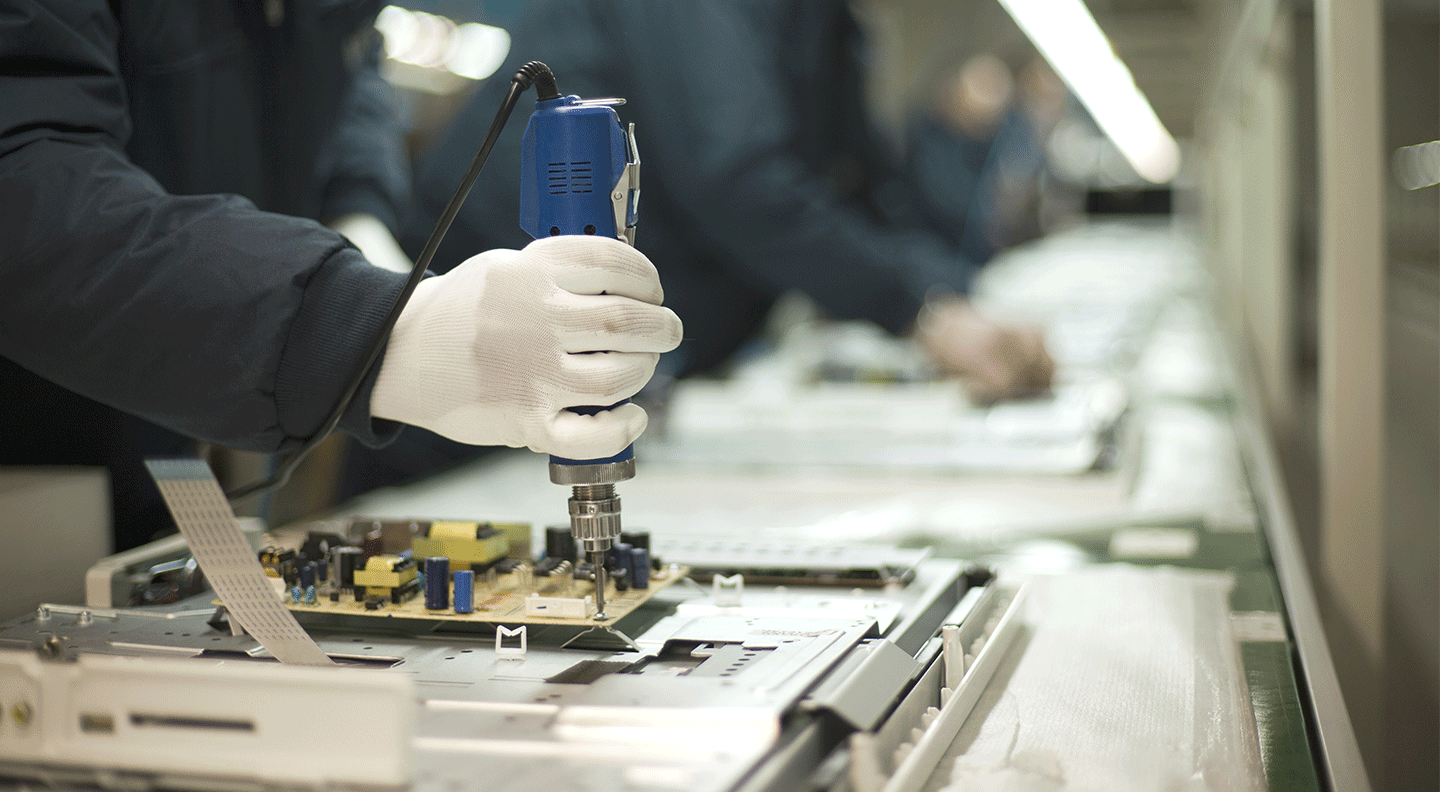Written by Patricia Whiting, Sr. International Policy Analyst for Sims Lifecycle Services (SLS)
Over the past decade or so, policy makers have promoted a move away from the historic linear economic model of “take-make-waste” that grew out of the industrial revolution. This shift has led us toward a circular economic model emphasizing sustainability and accompanied by a shift from the environmental paradigm of “cradle-to-grave” to “cradle-to-cradle”.
As the global population has continued to increase, there has been a growing recognition that the linear model of mining raw materials is unsustainable. While linear models support increased production and consumption of products, they are depleting the earth’s finite resources. These excessive amounts of waste and pollution are threatening the earth’s carrying capacity.
From the electronics’ industry standpoint, e-waste demonstrates the potential environmental and financial gains associated with promoting a circular economy. For example, rather than mining virgin ore, e-waste recovery is the precursor to “urban mining”. It has the potential to provide a stock of different metals, particularly both precious metals and rare earth elements.
To a great extent, public policy initiatives and governance approaches geared toward promoting the circular economy, in general, have focused on cascading, reuse, repair, maintenance, remanufacturing and recycling(1). However, recent studies highlighted that a more holistic or multidisciplinary approach is necessary to foster a circular economy emphasizing not only production and recycling but the important, and often ignored, role of the consumer.
The emphasis on the consumer coincided with the circular economy package released by the European Union (EU) in 2015. The EU’s Action Plan laid out provisions geared toward raising consumer awareness. This awareness might help increase their proactive role in choosing products and services that are better for the environment, quality of life and the financial bottom-line.
Affecting consumer attitudes and behavior is a challenge as consumers have historically been strongly influenced by trends and marketing campaigns, rather than obsolescence or recycling concerns. In terms of e-waste, public policies have not been aimed at consumers, instead they have been focused on manufacturers. Such policies have been legislated in the form of design-for-environment initiatives to promote,
- long-lasting and environmentally-friendly design,
- maintenance,
- repair,
- reuse, and improved
- processes for remanufacturing, refurbishing, recycling and upcycling.
Recent studies have looked at the potential of product service systems (PSS) and remanufacturing. These are viewed as strategies to transition to circular systems and promote their adoption in the business-to-consumer sector. Often such strategies have not been successful due to lack of consumer awareness or acceptance. (2)
Researchers at Yale’s School of Forestry and Environmental Studies (3) conducted a study on the development of a closed-loop system. This research was geared toward the recovery of valuable metals, and the reduction of e-waste specifically for mobile phones. In developing such a PSS, the team looked at appropriate component lifetimes; the often ignored role of the consumer in the circular economy; and social impacts of the proposed PSS. They proposed the development of a PSS where a user would purchase a cell phone contract from a wide range of potential distribution outlets (on-line, brick and mortar, independent community upgrade shops, or vending machines). The cell phones would be easily disassembled to facilitate upgrading and ease of component recovery. Over time, the external enclosure of the device would gradually change and become personalized, giving the owner a reason to keep the device rather than replace it.
The Yale study found, among other things, that for the most part, the role of the consumer has been assumed to be rather passive, with regard to accepting or not accepting a new PSS such that the emphasis has been on designing in and then retrieving value post use via new business models. They concluded that rather than attempting to “hide” sustainability in products and services, the consumer should be engaged in a products life cycle. In sum, they found that the circular economy needs to be considered as much in a multidisciplinary fashion, incorporating social and political factors, in addition to business, scientific and technological concerns.
[With regards to remanufacturing, SLS worked collaboratively with a printer OEM and committed a large capital expenditure to improve our plastics separation technology. SLS effectively created a system to separate ABS and polystyrene plastic to achieve a true closed-loop solution for printer plastic. We are able to recycle printer plastic and provide a raw commodity for use to manufacture new printers.]
With regards to remanufacturing, recently Best Buy and Hewlett Packard (HP) teamed up to take plastic from old printers and other electronics their customers recycle. In a closed-loop fashion printers can be separated, shredded, and plastic melted and put directly into the manufacture of three new HP printers – the HP ENVY Photo 6200, 7100 and 7800.
These printers are the first to be made from more than 10 percent recycled plastics and other electronics. This effort was accompanied by an external communication plan to educate consumers about the benefits of the circular economy.
The plan included the production of a video that was communicated through employee training, Best Buy’s website, their corporate news site and social media. This effort has been coupled with an increase in Best Buy’s circular economy messaging.
In summary, there are an increasing number of public policies being adopted to promote the transition from a linear to a closed-loop model as a means to attain sustainable development. As academia and industry continue to conduct studies and incorporate new processes with regard to the circular economy, the role of the consumer will likely continue to become a prominent variable.
Read more about developing sustainable partnerships.
Source:
1. Ellen MacArthur Foundation, 2013.
2. Camacho, Peterson, Boks, NTNU Norwegian University of Science and Technology 2017.
3. Researchers at Yale’s School of Forestry and Environmental Studies Bridgens, Hobson, Lilley, Lee, Scott, and Wilson, Journal of Industrial Ecology, volume 23, issue 1, August 26, 2017.
